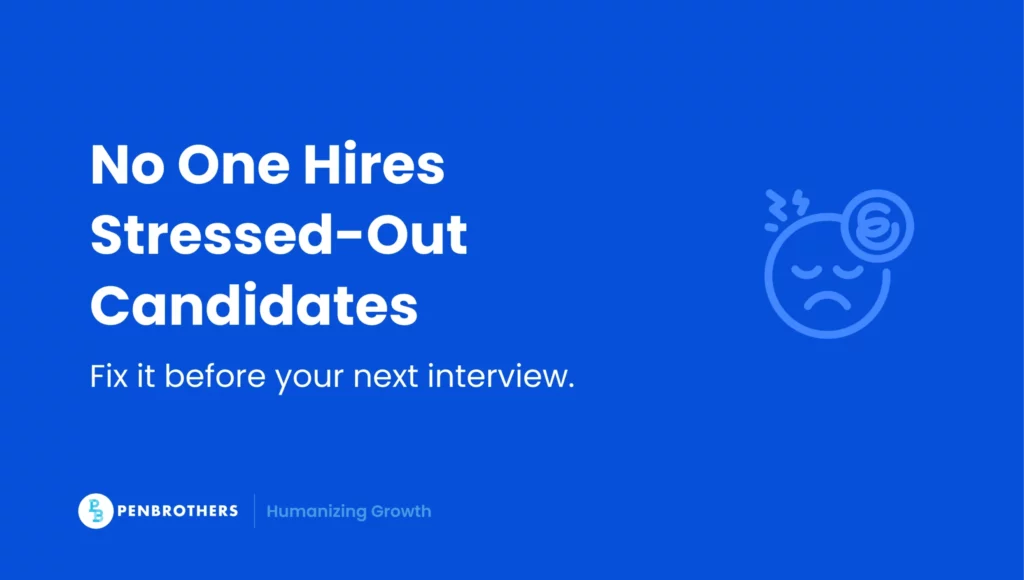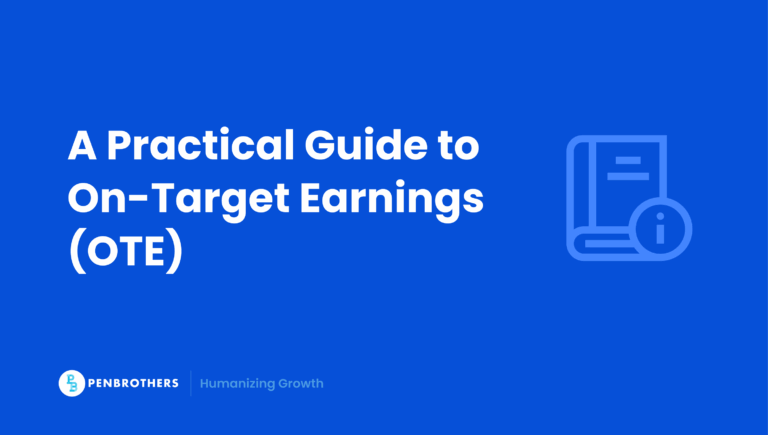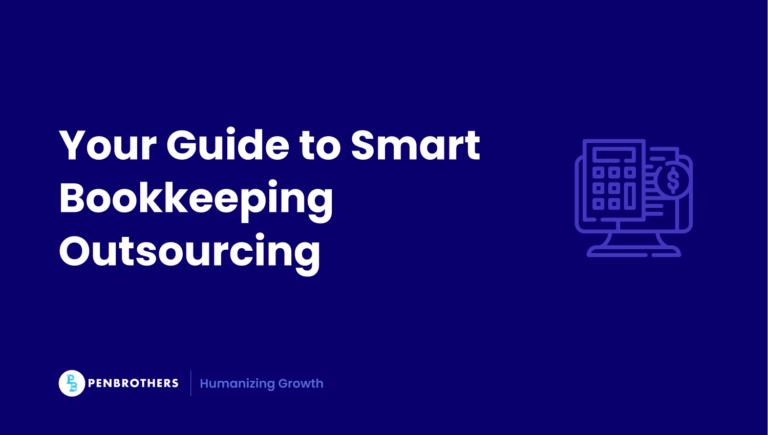Answering “How do you deal with stress?” in an interview can be challenging. Many candidates give generic, overused answers or focus too much on emotions rather than solutions, both of which can weaken their chances. But here’s the reality: Employers don’t just want to know if you “handle” stress. They want to see how you use it to your advantage.
This guide goes beyond cliché advice and provides performance-driven, job-specific strategies to craft a compelling answer that positions you as a strong candidate.
Why Employers Ask
Before crafting the perfect answer, it’s crucial to understand why this question matters to employers. It’s not just small talk. It’s a way to gauge your problem-solving skills, adaptability, and leadership potential.
- To assess problem-solving skills and decision-making
Employers want to know if you can think clearly under pressure and make smart decisions, especially in high-stakes roles like leadership, tech, and customer service.
- To measure adaptability in fast-paced or creative roles
For positions that involve tight deadlines or unpredictable situations, your ability to stay flexible and productive under stress is a key hiring factor.
- To evaluate self-awareness and its impact on team dynamics
Stress doesn’t just affect you. It impacts your team, clients, and overall productivity. Employers want candidates who can manage their stress in a way that keeps the workplace balanced.
If your answer doesn’t show how stress enhances your performance instead of just how you “cope” with it, you’re missing a key opportunity.
Best Strategies for Answering “How Do You Handle Stress?”
Most candidates default to the STAR method (Situation, Task, Action, Result) when answering behavioral interview questions. While it’s a structured approach, it has two major limitations:
- It focuses too much on storytelling rather than actual job impact.
- It doesn’t showcase how stress enhances long-term performance.
Instead, consider two stronger, performance-driven approaches.
1. Performance-Driven Approach (Best for leadership and executives)
This approach positions stress as a competitive advantage rather than a challenge to overcome. It highlights how stress helped you deliver better results.
Key Elements of a Strong Answer Using This Method
- Show how stress boosts efficiency, creativity, or leadership
- Focus on results and measurable impact rather than just “dealing” with stress
- Align your response with the employer’s expectations for high performance
2. Adaptive Mindset Strategy (Best for specialists and middle managers)
This approach showcases your ability to handle different types of stress and not just one situation. It proves that you can adjust based on different challenges.
Key Elements of a Strong Answer Using This Method
- Show flexibility in handling different stressors (tight deadlines, client conflicts, last-minute changes).
- Demonstrate real-world problem-solving rather than a scripted response.
- Highlight how you maintain long-term resilience.
Sample Answers Based on Different Roles
Stress affects every job differently, so your response should be role-specific and demonstrate how stress improves your performance rather than simply how you “manage” it. Below are customized answers for different roles, using the two performance-driven frameworks we covered:
Leadership (Managers, Directors)
Best Stress-Handling Strategy: Prioritizing clarity, delegation, and decision-making under pressure.
Interview Answer:
“In leadership, stress is unavoidable, but I use it to drive better decision-making and efficiency. When our company lost a key client, it created immediate revenue pressure. Instead of reacting impulsively, I worked with my team to analyze lost opportunities, strengthen our sales process, and target new markets. Within three months, we secured two new contracts that exceeded the lost revenue by 30 percent. I see stress as a tool that sharpens my ability to lead with strategy and focus.”
Why this works:
- Focuses on how stress improved leadership and business outcomes rather than just coping with it.
- Demonstrates a measurable impact under pressure.
- Highlights decision-making and strategic problem-solving.
Customer Service & Sales
Best Stress-Handling Strategy: Using active listening, structured problem-solving, and emotional control.
Interview Answer:
“Customer complaints and difficult interactions are part of the job, and I’ve learned to adjust my approach based on different stressors. For example, during peak sales season, I handled over 50 customer inquiries per day. Some were frustrated, some were confused, and some were in urgent need of help. I developed a system where I categorized requests by urgency and used personalized responses instead of generic scripts. This reduced resolution time by 40 percent and led to an increase in customer satisfaction scores. Rather than seeing stress as a challenge, I view it as an opportunity to refine my problem-solving skills and provide better service.”
Why this works:
- Shows adaptability to different stress triggers (high volume, customer frustration, urgency).
- Emphasizes real-world problem-solving and efficiency improvements.
- Demonstrates long-term resilience rather than a one-time example.
Tech & Engineering
Best Stress-Handling Strategy: Breaking down complex problems into structured steps.
Interview Answer:
“In the tech world, engineers regularly juggle demanding deadlines and sudden coding challenges. I use stress as a driver for structured problem-solving. During a product release, a critical security issue was discovered 24 hours before launch. Instead of panicking, I immediately prioritized tasks, divided responsibilities among team members, and implemented a structured debugging process. We resolved the issue in six hours, allowing the product to launch on schedule. The experience reinforced my ability to remain analytical and decisive under pressure.”
Why this works:
- Highlights structured thinking and crisis management.
- Demonstrates efficiency under high-stress technical challenges.
- Shows a clear, results-oriented approach rather than just managing emotions.
Creative & Marketing
Best Stress-Handling Strategy: Channeling pressure into structured workflows and innovation.
Interview Answer:
“Creative work often comes with last-minute changes, tight deadlines, and high expectations. I’ve learned to adapt my approach based on the type of stress I’m facing. For example, during a campaign launch, a major client requested a brand overhaul two days before the deadline. Rather than rushing through revisions, I quickly assessed which elements had the most impact and used a structured workflow to implement high-priority changes first. The campaign not only launched on time but also increased engagement by 25 percent. I’ve found that stress, when approached strategically, fuels my ability to deliver high-quality creative work under pressure.”
Why this works:
- Demonstrates adaptability to different types of stress (tight deadlines, client demands, creative pressure).
- Shows structured problem-solving in a high-pressure situation.
- Frames stress as a driver for innovation and quality work.
By taking inspiration from these sample answers, you can turn the stress question into an opportunity to showcase your ability to thrive under pressure and drive real results.
Mistakes to Avoid: The Red Flags That Sink Your Answer
Veering away from the wrong words is just as crucial as choosing the right ones. Avoid these common pitfalls that can undermine your credibility and cost you the job.
1. Claiming You Never Feel Stress
Why It Fails: Saying “I don’t get stressed” sounds unrealistic and detached. No employer believes that you’ve never faced high-pressure situations, and denying stress can signal a lack of emotional intelligence.
Better Approach: Acknowledge that stress happens, but demonstrate how you use it to your advantage.
2. Focusing on Emotions Instead of Solutions
Why It Fails: Talking about how stress makes you feel without tying it to how you respond makes you sound passive rather than proactive. Employers care about actions, not emotions.
Weak Answer:
“Stress makes me anxious, but I try to stay calm and take deep breaths.”
Better Answer:
“When faced with tight deadlines, I immediately assess priorities, structure my approach, and focus on execution. This keeps me productive rather than reactive.”
3. Failing to Show How Stress Improves Your Performance
Why It Fails: Many candidates frame stress as something to endure or manage rather than as a tool that sharpens their performance. This weakens your credibility.
Better Approach: Prove that stress drives your best work by giving a measurable example.
If your answer sounds rehearsed, vague, or overly emotional, you risk looking unprepared or unable to handle pressure.
Follow-Up Questions: Be Prepared for Deeper Dives
Don’t be surprised if the interviewer probes further with follow-up questions. These questions are designed to dig deeper and assess the authenticity and consistency of your answer. Prepare for these possibilities:
- “Can you give an example of a time when stress helped you perform better?”
- “How do you handle stress when faced with uncertainty or lack of clear direction?”
- “How do you manage stress when working with a difficult colleague or client?”
- “How do you support teammates who are struggling with stress?”
Anticipating and preparing for follow-up questions allows you to provide more detailed and nuanced answers. It also shows that you’re confident in your ability to handle stress and contribute to a positive work environment.
Leverage Stress Management to Land the Right Role
Stress isn’t just something to “manage”. It’s something that can help you thrive in the right role. Instead of fearing stressful environments, find jobs where your stress-handling style aligns with the company culture.
But not every job aligns with your stress-handling style. Some roles demand fast-paced adaptability, while others thrive on structured problem-solving or innovative thinking under pressure. The key is finding a position where you don’t just survive stress. You excel because of it.
If you’re ready to put your ability to handle growth-focused work environments to the test, explore open roles where your skills and mindset will set you apart.






